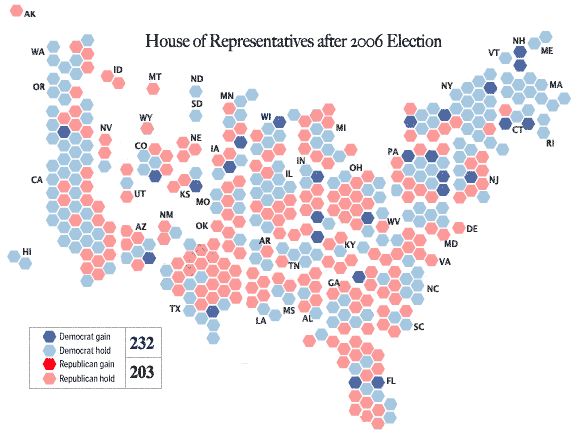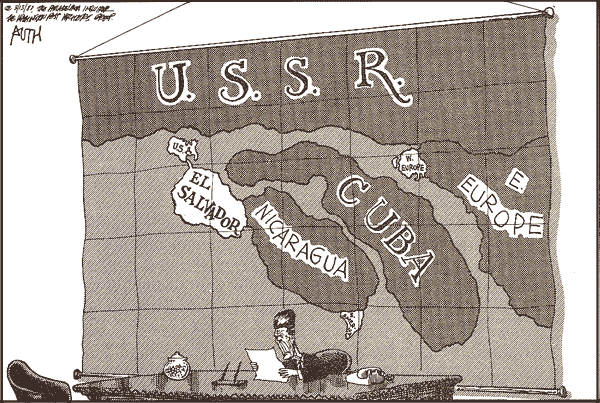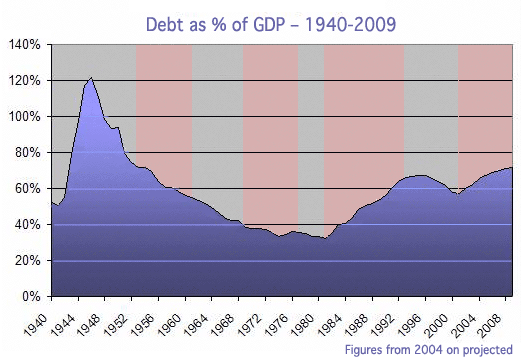


| Rants for | 2001 | 2002 | 2003 | 2004 | 2005 | 2006 | 2007 |

| | 
|

Now, the Engrish is fun enough ("Run quickly when on the iong bridge with loosing planks!"), but surely cultural differences cannot explain why a toddlers' play railway needs a logo with dripping blood. To say nothing of the demon in the corner.

One of the major features of the playset is the fact that it has blocks:

EXECUTIVE. We need to get the sequel to "Railway I" out right away.
MANAGER. But... all we have ready is a car set.
EXECUTIVE. No time, no time, just change the logo. And Henderson?
MANAGER. Yes sir?
EXECUTIVE. Don't forget the demon.


However, we were entirely defeated by this series of warning icons:
This just in: Alert reader Matt Adams was inspired to create versions of the above icons in Adobe Illustrator. Now you too can deal out inexplicable warnings!

| | 
|
First, despite the long-overdue firing of Rumsfeld, he's made it clear that he's sticking to his "nothing less than victory" mantra. There's several reasons why this is foolish.
He'll continue to use torture and throw away civil rights; he's made it perfectly clear that doesn't think he has to obey Congress or the Constitution.
And that's not even the worst case. According to Seymour Hersch, the neocons think that "there can be no settlement of the Iraq war without regime change in Iran". (This isn't exactly a deep secret; neocon Joshua Muravchik has an editorial in Foreign Policy advocating the bombing of Iran.)
Finally, there's no Marshall Plan for Iraq; only a small percentage of the promised reconstruction ever got started. To get his nothing less than victory, Bush relies on nothing more than war.

| | 
|
The options don't look good, and the bipartisan Baker-Hamilton commission is unlikely to unearth any good new ideas. Four years ago, more commitment and more realism might have made a big difference. Now, not so much. It's easier to gain respect when you start a project than when it's been going downhill for years; and our opponents are not stupid; they can smell the blood in the water. Given our position today, here's what we're likely to need.
The base problem is, as usual, that we're fighting the last war-- not WWII or Vietnam, but the Cold War. Proxy wars worked, more or less, during the Cold War, both because the stakes in any one country were usually low (did it really matter who ended up with Chad or Laos?), and because the Soviets played by similar rules, and retreated when things got too tough. Insurgents don't play by those rules, and proxy wars don't defeat insurgencies.
If we're not going to do all that-- and I'm sure George Bush won't, and no candidate in 2008 will run on that platform-- then what do we do?
Declare victory and leave, of course.
Just because we've messed up doesn't mean that we should or must keep throwing our money and our troops away. If we feel responsible-- and we should-- then continued military occupation isn't the only way to discharge that responsibility. Would the best approach to Vietnam be to go back and start the war up again?
Naturally, we shouldn't just pull out in disarray, as we did in Vietnam. At the least, we want to reward our friends and discomfit our enemies. To wit:
(Non-intervention is the best policy... but screwing your friends is the worst. We've made bad situations worse before, e.g. in Bosnia, by pretending till far too late that we were entirely impartial. And when the US is widely perceived as having inspired and then betrayed anti-Hussein rebellions in 1991, it seems pretty foolish to do the same thing again.)
(The main idea here is to have Iraqis, not Americans, take responsibility for the timing of the withdrawal and what sort of help they need. They have little incentive to take their work seriously so long as the decisions are made by Bush and the fighting is done by the US.)
(Can the Iraqi army get ready in time? That's the wrong question. If you want to "win the war", see the plan above. Failing that, what we want is to favor the factions best disposed towards us.)
(Yes, this is the opposite of the strategy above. That's because the first strategy was to win; this is to withdraw without disaster. To win, we have to defeat the warlords. If we're not going to defeat them, we have to live with them and seek only to minimize the trouble they can cause.)

| | 
|
Pundits are veering, sometimes in the same article, from grandiose pronouncements that the conservative movement is dead to worries that the Democrats will immediately mess up. (Light-right publications like the Economist hope against hope that Democrats plus Bush will govern as the Republicans were supposed to.)

George Will, in Newsweek, consoles himself with the thought that the new Congress (thanks to the loss of a number of moderate Republicans) will actually be more conservative. I think not, George. The nation couldn't be clearer about its rejection of Bush and his pet Congress. The Republicans didn't pick up a single seat from the Democrats. Democrats won all their hot-button referenda on the minimum wage; Republicans for the first time lost one of theirs on gay marriage.
(The graphic is adapted from one in the Boston Globe, correcting a couple of errors, assigning all close races to the candidate who's ahead, and spreading out the Western states. I like this view much better than the geographical maps that most sites present, which greatly exaggerate how red the population is. Politics is driven by number of people, not by square miles.)
The country is still highly polarized, and the conservative movement is far from dead. What may be severely crippled, however, is Rovism. Karl Rove explicitly disdained centrist policies and tried to govern from the base. And despite some missteps (Harriet Miers, Bush's proposed immigration amnesty), the Republicans have pretty much held the base together. But their contempt for the center has now been cordially returned.
I'm sure the old methods will be trotted out again in 2008. But one thing does get through politicians' heads, and that's losing. The Rove strategy was unassailable while it worked. Now that it's spectacularly failed, the party will very likely back away from it.
And even if they don't, it seems that the Democrats have learned the lesson. They didn't win by appeasing their own base; they kept to a rigorous program of expanding the tent, contesting seats even where they were at a disadvantage, and searching out more moderate candidates (most notably James Webb).
If the Democrats are smart (and that's a risky assumption), the first thing they'll do is undo Tom DeLay's program to cook Congress. District boundaries have been redrawn to favor Republicans, who have been able to control Congress with a minority of votes cast. I'd like to see a Constitutional amendment outlawing gerrymandering, and requiring bipartisan agreement on district boundaries. Maybe it wouldn't pass, but let's get the Republicans on record as opposing fair districting.
2008 should be very, very interesting-- unless the Democrats pull the bonehead move of nominating Hillary. People may come to respect Hillary, but no one really loves her; and Democrats have got to get out of the habit of nominating smart, respectable people with all the charm of a Scientologist. The big question on the Democratic side is whether Barrack Obama can stand up under relentless media attack-- if he can, he's probably a shoo-in. On the Republican side, the question is whether the candidates who can attract the independents (i.e. Giuliani, McCain) can connect with the base.

| | 
|
The first 300 or so pages are almost a historical novel, as he tells stories of half a dozen immortals scattered through history. The past societies are evoked with Anderson's usual convincing care; but there's about twice as much material as is needed. The basic predicament of all the immortals is about the same; and our sense of them as individuals is impeded by the constantly switching names.
And then, to my mind, he throws the book away in the section set in 1975, as he trots out his own political hobbyhorses. All of a sudden the main character, whose roots are in ancient Phoenecia and who's survived and thrived in every empire since, turns into a Heinleinian libertarian whose obsession is the fascist imposition of the income tax, and who battles "liberals" fronting for the Commies. And this after very sympathetic earlier portrayals of a slave escaping through the Underground Railroad, and a Russian woman sharpshooter fighting the Germans in the ruins of Stalingrad. It's as if Aragorn had finally taken the throne of Gondor and turned into a John Bircher.
Time hasn't been kind to this worldview. I wonder what Anderson would have made of the present day, when socialism is as dead as the British Raj, and libertarians helped usher in the prospect of endless warfare, Nietzchean domestic politics, and disdain for the Bill of Rights.
And then, in less than a hundred pages, there's a whirlwind s.f. story: the immortals share their secret with the world, which turns out not to be very interested; Earth devolves into a self-satisfied, sparkless utopia; the immortals go off exploring and meet a few alien races. It's too hurried to really work, though I admire one fine idea: the fractal tentacles of one of the alien races.
Anderson's future repeats an old, old s.f. trope (compare E.M. Forster's The Machine Stops, from 1928): that science will usher in an age of such soft comfort that all the old manly virtues will be lost. (Anderson's heroines have their full share of manly virtues.) I think you have to go back to the 19th century to see where this idea comes from: ever-increasing civilization, science, leisure, humaneness, and mastery of the world, leading to a society where hardly anyone can properly wield a sword or build a log cabin. It's hard to look at 20th century history and worry too much about this prospect, and even harder considering what we can foresee of the 21st.

| | 
|
 It will be called, simply enough, Ask Zompist, or a Zompistlike Persona, Questions of Your Choosing in Hopes of Receiving Answers. From Zompist. All you have to do is write me with a question; include "Ask Zompist" in the subject or text so it's clear whether it's personal mail, or a submission for this feature.
It will be called, simply enough, Ask Zompist, or a Zompistlike Persona, Questions of Your Choosing in Hopes of Receiving Answers. From Zompist. All you have to do is write me with a question; include "Ask Zompist" in the subject or text so it's clear whether it's personal mail, or a submission for this feature.
Update: First questions and answers here!

| | 
|

Why does Bush want to shred the Constitution? Well, for the same reasons as Jack Bauer. Since consies feel that they're under apocalyptic attack, they feel that any means are legitimate. (So long as their own guy in charge, of course. When Clinton was President, they considered it an abuse of power if they guy even got a haircut on Air Force One.)
I never thought a later US President would start to make Reagan look good. Though Reagan has much evil to answer for, he did have the sense to be satisfied with merely theatrical machismo-- the only country he invaded was Grenada, population 100,000, and I don't recall him repealing habeas corpus and making torture into US policy.
Bob Woodward has appropriately titled his new book on Bush State of Denial. Unfortunately for those of us in the reality-based community, denial is great politics. No one's going to get elected telling Americans that they have to pay higher taxes, buy smaller cars, raise the retirement age, accept evolution, either really commit to Iraq or abandon it, and make friends rather than enemies in the world. The problem with denial, of course, is that the problems you ignore don't actually go away.
How long will Americans keep voting for denial? We'll see in November.

| | 
|

 A couple of weeks ago I went up to Cambridge for Rich Burlew's Q&A and book signing. Pleasantly, Burlew is not quite as popular as Neil Gaiman, so there weren't that many people there, and he drew individual sketches for us. And as you can see, he drew mine right on my rant page.
A couple of weeks ago I went up to Cambridge for Rich Burlew's Q&A and book signing. Pleasantly, Burlew is not quite as popular as Neil Gaiman, so there weren't that many people there, and he drew individual sketches for us. And as you can see, he drew mine right on my rant page.
Mine is shown at the right; it's Clyde, the archer rogue I played in Lore's D&D campaign.
And at left is what Burlew looks like. It turns out that Burlew looks-- and talks-- much like spinn.
And how, you ask, is the book, No Cure for the Paladin Blues? Oh, it's pretty good. When it was coming out online, I thought the balance of the strip had strayed a bit too far from "comic adventures" to "the DM amuses himself by inflicting pages and pages of cosmology on the players". (Come to think of it, Lore had some of that going on too; we just ignored it, mostly.) Anyway, in the TPB, it doesn't take up that much room. On the other hand, my patience with Haley's cryptograms lasted about two strips.
Fortunately, in the latest strips, they're back to beating up things.

| | 
|
An economist sets up this game: He offers $10 to you and a stranger. The stranger is to propose a division of the money; you can either accept the division (in which case you each get the money according to the other guy's proposal) or reject it (in which case neither of you get anything).
Take a moment to think how you would react to this game; and how you should react to it, if that's different.
Cassidy comments:
Game theorists say that you should accept any positive offer you receive, even one as low as a dollar, or you will end up with nothing. But most people reject offers of less than three dollars, and some turn down anything less than five dollars.
Now, game theory is entitled to simplifying assumptions. But I think it's quite wrong to call people's actual preferences 'irrational'; or to look at brain scans of people playing such games (as is now possible) and conclude that a "reasoning" sector of the brain is competing with an "emotional" sector.
Are people emotional or irrational if they reject a $9/$1 division in the stranger's favor? Certainly not; they're expressing a very reasonable outrage at someone being a jerk. There's nothing irrational about opposing a jerk; in fact it's necessary to teach the jerk not to be such a jerk. We're happy to spend the economist's money to teach the lesson. It's even worthwhile if we never see the jerk again: if all non-jerks make it a practice to oppose jerky behavior, jerks will have to think twice before trying to take advantage of someone new.
In a highly artificial situation such as a game, looking for immediate advantage may be fine and correct. (Though it doesn't even apply to all games. Many games require alliances or agreements and don't reward being an absolute bastard.) Game theorists can't have it both ways. Game theory is touted as offering insights into real-world dilemmas and behavior. If it posits a toy context-free rationality, it can explain only toy context-free games.
What game theory tends to leave out-- repeated interaction-- makes all the difference. We evolved as members of highly interactive groups, where bad behavior was remembered. Our instinctive reaction to injustice is a feature, not a bug.
In economics, rationality is largely reduced to money. For many purposes this is adequate; but for the largest issues it's not. Essentially economics treats "hard to monetarize" as equivalent to "of low value". And it's not hard to see that attitude leading to any number of irrational disasters.

| | 
|
One factoid I remember is that the discovery and temporary loss of Ceres were a sensation; Napoleon discussed it on the battlefield; Berzelius named a new element after it; and the greatest mathematician of the day, Gauss, calculated its orbit.
The first few times scientists do something new (discover a planet, identify a subatomic particle, reconstruct a language family), it's big news. Later on, the same thing just adds to a catalog somewhere. Ceres is about at the cusp of this process. (Can you name the next largest asteroid?)

| | 
|
In fact, the attempted attacks are more evidence that Bush and DeLay's approach is wrong, and makes us less safe.
If you want a better analogy, think of terrorism as a form of organized crime. (In South America, in fact, the two have pretty much merged.) You don't fight the Mafia by air attacks. You need intelligence, in both senses.

| | 
|
What do you do then? You get a better analogy, of course, even if that means waiting for someone to think of one. Physics, for instance, used to have an analogy of electrons whirling around atomic nuclei like little planets. It was easy to grasp and made for a kick-ass futuristic logo. Only it doesn't fit the facts and actually retards understanding of quantum mechanics. In this case about the best that could be done was to abandon the bad old model; no one's come up with as neat a visual metaphor.

| | 
|
The major problems:
By the way, 1874 wasn't as bad as the film depicts it. There were plenty of blacks in the West. (Skip the intro and go right to the case studies.) There were a number of black lawmen, for instance. This in itself doesn't spoil the movie, but it may help explain the feeling I get that it's trying too hard. The extreme racism depicted is, after all, an invitation for Brooks and the audience to congratulate themselves for not being racists.
(If you've read the preceding rant, you may ask "Isn't this the same thing? Didn't the movie take a bold position for 1974?" Yes and no. It was funnier at the time. Then again, 1974 was not 1960. In between, the Sixties happened. And in cinema alone, consider that Shaft had come out three years before.)

| | 
|
Sorry, I've been playing way too much Oblivion lately. More on that later. Anyway, Metcalf calls Mallon a "superb" critic, which surprised me; I'd have gone with "about as insightful as troll fat."
Mallon basically finds Mockingbird too "simple"; Atticus is "a plaster saint... stiff... insufferable"; Scout is "a highly constructed doll"; Lee's writing is "wildly unstable" and "clumsy"; the book is finally an "ungainsayable endorser of the obvious".
Not a single one of these rusty iron arrows connects. It's not just that Mockingbird is delightful and Mallon can't see it; it's that he can't see where it comes from and who it was addressed to. He thinks Atticus would have been better if he was more like his model, Lee's father, who believed in segregation, though he eventually became "more progressive". That would have been a Pulitzer winner for sure.
"The past is a foreign country," L.P. Hartley observed; and one of the sharpest boundaries is before and after the civil rights movement. It's not generally realized, I think, just how thoroughly nasty American racism was. It wasn't just bad feeling and bad jokes; it was a deep and abiding hatred, a minefield of daily humiliations, a systematic plot to keep blacks just one step out of slavery-- and if any black managed to step forward all the same, he could be kept in line with out-and-out terrorism.
(One of the subtler reasons the past gets fuzzy is that real evils become metaphors, and those get debased. People talk about being disenfranchised to mean they're not listened to-- not because they're denied the right to vote. Clarence Thomas famously complained about a "high-tech lynching"; but in a real lynching, blacks were not put on the Supreme Court; they were hung from a a noose until dead.)
So half the problem is that Mallon isn't reading Mockingbird in the foreign country it was writen in; he's reading it today, and of course he finds it simple and moralistic. On this side of the border, racism is simply bad and no one who matters to Mallon thinks otherwise. On Lee's side, almost all of her neighbors simply couldn't see this "obvious" point, and Northerners were not that much more enlightened. An ongoing moral catastrophe does not need sensitively ambiguous treatments with roguish antiheroes. It needs to be blasted open with blinding moral clarity.
A prophet is an uncomfortable figure in his own time; but he's never so embarrassing as in the future when his views have won, like Solzhenitsyn in post-communist Russia. No one can understand his vehemence... why is he so loud about things that everybody already knows? Can't he muster even a little sophistication?
Metcalf is much kinder to the book; but he also gets it curiously wrong. For instance, he calls it a book of the '60s, like One Flew Over the Cuckoo's Nest and The Feminine Mystique, and wonders why it seems so out of place in that company. Easy: because it's not a book of the '60s, but of the '50s. It came out in 1960, but was written over the course of the previous decade. The '50s were not the '60s, not even for liberals. The race problem was to be approached with solemnity and "all deliberate speed", in the Supreme Court's delicate oxymoron. Martin Luther King was on the extreme side of things.
Another of Metcalf's worries-- that it seems nostalgic for the 1930s- - is another no-brainer. Lee grew up in the '30s. When else was she supposed to set a book about a Southern childhood?
Finally, there's the contradictory complaint that the story "reaffirms the priority of a child's point of view" (as opposed to foreshadowing "adult unease"), while "mixing an adult's and a child's perspective". Bizarre concerns; didn't these people read E.M. Forster's Aspects of the Novel? Shifts in points of view are the prerogative and the strength of novelists; critics may go astray in this out of a feeling that novels really ought to be plays. If that's too abstract, just take the book as narrated by Scout years after the events it tells. That's what it says it's doing on page one.
Not that I'm a deep '50s scholar; I didn't realize till Capote came out that Truman Capote was associated with Harper Lee, and indeed was the model for Dill in the book.

| | 
|
Losing
There's a case to be made for losing. It'd be best to take charge when the country is thoroughly sick of conservativism-- and it's not; it's just sick of George Bush.
As I've said before, we need grown-ups back in power. The recklessness of the Bushites needs to be cleaned up: out-of-control spending and the mess in Iraq to start with; our cheap oil addiction, stratospheric health costs, and global warming on the horizon. Grown-up solutions to these problems are not going to be popular. Why not let the Republicans take the hit? Conservatives in power are their own worst enemy: their frighteningly efficient political machine is built to win elections, not to govern. Smart Republicans might be praying for defeat in November: then they could go back to the great game of sniping at liberals, rather than the gloomy business of cleaning up the messes they've made.
As well, what would Democrats do in Congress anyway? They're almost certainly not going to get a majority that would let them control spending in the face of Bush's vetoes. They would have no control over Iraq or the judiciary, though the consies would be having a grand time blaming them anyway. About all they could do is mount investigations and hold up appointments.
Newt Gingrich demonstrated that a new congressional majority can hit the ground running and make a big impact; but a) Gingrich also demonstrated the limits of congressional power, and b) Democrats are unlikely to come up with something as focussed as the Contract with America.
On the other hand, divided government does tend to rein in spending, and congressional opposition could prevent some Bush excesses.
Winning
I had some notes here on how to win the election, but reading them over, they're boring. Let's talk instead about positive plans. "Not being George Bush" is good as far as it goes, but I think Ted Rall is on to something: we need some proposals that squarely benefit the middle class.
Rall's list isn't bad, but I think it's more aimed at Canadians than Americans, and misses, I think, the central tendency of our time: we're barreling back toward the robber baron era. For awhile liberalism made us the most broadly prosperous nation in history. We still think of ourselves as a middle-class nation... but we think wrong. The upper class is back in control, and is slowly taking back everything they were forced to concede: higher worker wages, job security, shorter working hours, a sense of responsibility to the community. They'd love to get rid of company- supplied health insurance, environmental and food quality regulation, and corporate liability. (Not sure about that? Watch; soon enough you'll see news articles decrying US automakers' health costs, or blogs bringing up the McDonald's coffee lady for the hundredth time. The underlying message of these memes: corporations have no responsibilities to America.)
Corporations aren't inherently evil; but they have no inherent morality, either. If they see no downsides to outsourcing American jobs, or paying their CEOs a billion dollars, or hiring illegal aliens, or doubling work weeks for no extra pay, or dumping toxic chemicals somewhere, they'll do it. We don't even have to make these things illegal; we just have to make them less profitable.
Jared Diamond's Collapse, though it's not directly about politics, is essential reading here. Societies can and do destroy their own environment for short-term gain. Why do they do something so foolish? Because "societies" don't act at all; individuals do, and powerful individuals will cheerfully act in ways that harm society as a whole. We need extra rewards for companies that act as good citizens, extra penalties for those that choose not to.

| | 
|
It's also an infuriating book. Not because of Packer; it's that reading a 400-page dissection of incompetence is painful stuff. Iraq isn't a case of idiots not knowing what they're doing, which would at least be understandable. It's a case of smart people willfully deluding themselves, which is unforgivable.
Executive summary: There was no long-range plan. The administration sidelined anyone with experience and convinced themselves that they'd topple Saddam, set up Ahmad Chalabi in power, and leave within four months. When things didn't go as planned, alternatives proceeded glacially. Bush belatedly asked for reconstruction money, and then couldn't get going on spending it. It took literally years for the administration to admit that it was facing an insurgency; it still shows little interest in the methods for fighting one. It got rid of the Iraqi army, then delegated training a new one to a private company, which bungled it; there is still no force capable of taking over for us.
Probably anyone who's followed the story knows that Defense got control of postwar government from State; Packer reveals that the group within Defense was sidelined as well. The future administrators were ignored by the military planners; they were flown to Kuwait before the invasion but not even equipped with cell phones; when Baghdad fell they were still there, writing documents no one would read, out of the loop. A few administrators had thought about points to protect... but they might as well have been on the moon; the army got to Baghdad and simply shut down, allowing the looting that got the occupation off to such a bad start. The cost of the looting has been estimated at $12 billion.
(Some commanders, on their own initiative, did turn themselves into police and rulers, but without support from higher-ups and with very few resources: no training, little money, few translators.)
Why did the neocons want to invade? WMD were a worry, but were more important as the best tool for selling the war to the country. Different officials had different reasons and different goals; but I'd say what they had in common was a John Wayne idealization of American power. They thought America, since Vietnam, had been "pushed around" and didn't assert its predominant position. Long before 9/11, Saddam was a focus point for this resentment, both because he was completely defiant and because liberals (i.e. Clinton) had done nothing to take him down.
So, these were people who deeply studied supposed instances of American weakness and yearned to act differently. They were temperamentally and ideologically unable to appreciate that there might be limits, practical or political, on what America could do. They didn't want to hear it; they punished anyone who dared to say it.
The desire to implant democracy was sincere enough; but here too, denial and fantasy were the order of the day. The bureaucrats sat in Saddam's old palace in Baghdad, barely interacting with Iraq-- not that a Westerner can safely walk the streets of the city these days even if he wanted to. They were careful to implement a flat tax, and unable to provide basic security. They seemed to expect that Iraqis would automatically create a Western democracy on their own; but Iraqis had no experience that would enable them to do so. Only political Islam had any plan. Some of Packer's saddest tales are of women whose hope for freedom was dashed; they exchanged Soviet-style for Iranian repression.
I can't improve on Packer's verdict:
I came to believe that those in positions of highest responsibility for Iraq showed a carelessness about human life that amounted to criminal negligence. Swaddled in abstract ideas, convinced of their own righteousness, incapable of self- criticism, indifferent to accountability, they turned a difficult undertaking into a needlessly deadly one. When things went wrong, they found other people to blame. The Iraq War was always winnable; it still is. For this very reason, the recklessness of its authors is all the harder to forgive.

| | 
|
It's a tricky problem-- it'd certainly be bad if Iran had nukes, but Bush has no credibility left, either in his alarmist statements about Middle Eastern states, or in his capacity for managing another military adventure.
The pundits can work themselves into knots over this, but this particular knot can be cut. Before contemplating any military action, let's wait for Bush to leave office.
Even if Iran is rushing toward nukes, it won't get there in the next three years. So we lose nothing by waiting; indeed, the evidence should be a lot better by then.
And we'd be rid of our number one obstacle-- George Bush.
Iran is a worry; what it isn't is a crisis. We can wait till a grown-up is in charge before doing anything drastic.

| | 
|
What exactly makes for great gameplay is a deep mystery... but not so deep that it can't be argued about. As I recall, we found Civ as it came out of the box had slow moves, too much waiting around, and combat that was too random. We felt like we never really got to play with the modern era units. And players in 4th or 6th place didn't have much fun, nor much chance of catching up.
Some of our changes included:
This year we've been playing Axis & Allies. We haven't changed the rules... yet. The best and worst things about the game are the same: its fixed strategic situation. You know who your allies are, and most of the five countries have a pretty evident strategy. (E.g., Russia's is "Try not to get whacked like a bug.") It's an exquisite puzzle; and yet I wonder how replayable it is. People tend not to want to play Russia more than once.
Another negative is that turns are long and single-player... while someone's thinking, you'd might as well go check your mail, or maybe go out for dinner. On the other hand, that makes it suitable for leaving it set up in the empty office and playing two turns a day. (My boss is a little upset over that, as you can imagine. He's playing Japan and he'd prefer three.)
But then... but then... Civ is wonderfully open-ended, and Axis & Allies has a great combat system. There's got to be a way to put these two things together...

| | 
|
By the way, Bush's figure for reconstruction funds for Iraq for this year is $1.6 billion.
What's tragic and infuriating is that Bush has not only pissed away Iraq, he's spoiled just about any American action abroad more ambitious than a quick raid for perhaps another generation. Who, Republican or Democrat, is going to commit to fix Iraq, or to oppose another tinpot dictator, or create a united front between the US and Europe on any tricky issue, or work to create democracy in places that badly need it? It's not that Bush has proven these things impossible-- far from it. He's just made them politically impossible.
Levees broke in Merced, California, this week, causing widespread flooding... I wonder if the consie blogosphere is suggesting that people foolish enough to build in California deserve what they get.
When did Americans become the can't-do people? Yes, Louisiana is a huge ecological and technical challenge. But if the Dutch can live and prosper in a country where 60% of the land is threatened by flooding, I can't believe it can't be done here.
I know many illegal immigrants, so I can't sign up for the crusade against them. It's fine to talk about ways to discourage illegal immigration; but fantasy and moralism are not among those ways. They haven't made drugs go away; why do these people think they'll take care of illegal immigration?
You may shrug and accept it and you may be outraged by it, but the fact is: you can't make illegals stay away. You may be able to reduce the flow. There are people who feel they need to get into the country, and they'll do almost anything to get here. They won't be stopped by attempts to make their lives more miserable, nor will anybody be helped by denying them health care or keeping their kids out of school.
And frankly, illegal immigrants are going to keep coming so long as suburban Republicans want cheap child care and construction in their houses, and cheap landscaping and housekeeping in their office parks. If they want to pay nice white folks twice the wages so they'll do those jobs, why, no one's stopping them.

| | 
|

Note that the metric isn't total debt-- but that's good, total debt is not a very useful figure. This is a good metric for the manageability of the national debt, since as the economy grows, we can afford a bigger debt. (Compare it to a mortgage: if your income is $30,000, a $90,000 mortgage is huge; but not if your income is $100,000.)
In short, the Depression and then World War II created a huge spike in debt/GNP, which both parties steadily whittled down till the mid- '70s. And then the Republicans lost their minds. Since then they've chugged up the debt; the only post-1980 period of decline is under Clinton.
So, measured in terms of our ability to pay, the Republicans have taken us back far above Depression or Vietnam War levels (and even above Civil War levels, as can be seen from another of Wieczorek's graphs); they've taken us to World War II levels of debt, and they're not done yet.

| | 
|
My wife liked it well enough— she likes psychological portraits of sociopaths— but I'm firmly in the “eh” camp. It's not a bad movie, but it's not a good one, either. The first bit, about Jonathan Rhys-Meyers's adroit social climbing, is interesting enough, and the last half-hour— when the crime starts— is certainly watchable; but I frankly squirmed in the middle. And too much of the film unravels when you start thinking about it.
The movie telegraphs fairly early that Rhys-Meyers's character is, behind his impeccable manners, an opportunist and a cad. But the transition to criminal takes the movie out of even minimal realism into fantasyland. It's the same fantasy world we willingly enter for a traditional British detective story, where upper-class Brits are all murderers or look like them— but those are diversions. Allen has some great storytelling twists up his sleeve, but no new moral insights. (From reading reviews, I'm guessing it makes a difference whether you identify with the main character or not. I found him too dislikeable to empathize with.)
The characters almost all melt away on inspection, as well. The family Rhys-Meyers marries into has a simulacrum of life, but no real character. His wife is sweet and that's it— she's supposed to be avid about art, but doesn't have a single interesting thing to say about it. The father is a picture of benevolence with apparently no other traits whatsoever. Scarlett Johansson comes closest to having a character, but Allen is curiously uninterested in anything but her sex appeal. She goes on several auditions, for instance, and we don't see any of them; even fifteen seconds of her standing awkwardly on a stage would have helped make her real. All in all it makes me regret Allen's decision to forego the jokes: at least they give his pictures a surface full of vitality.

| | 
|

| | 
|
My overall impression is that the movie gets things about 80% right. It's definitely a version of the book, properly charming and scary in the right places, and thankfully they didn't go and add extra Jesus to it. Lucy seems a little young for the role (or else Edmund is too old- - they're only supposed to be a year apart), but she has a wonderful smile.
Of course there's a hidden message to the movie, one which however many kids won't get and which you may ignore if you can: the voice of Aslan will go on to ask people about sex and betray Batman.
The bits the movie gets wrong mostly relate to the kids. There's the nasty idea, which we could blame on those moralizing Christians if it didn't also possess George Lucas, that Great Evil is foreshadowed by bickering and acts of childish rebellion. And whose idea of affectionate banter is "Why don't you do as you're told?" James Dobson's?
The interview with the professor fulfills its plot functions, but screws up Lewis's theology and morality both, quite an achievement for a minute of screen time. They do get across the idea that Lucy is a truthful child and therefore likely to still be truthful; they miss the reference to Lewis's argument for Jesus: that he is either a madman, a liar, or telling the truth, and he doesn't act at all like either of the first two. The professor also points out that a small child would be unlikely to invent the time discrepancy between Narnia and Earth. Neither argument is necessarily ironclad, but they make the difference between a character who is actually intelligent, and one who just intones "logically" as a catch-phrase.
The scene ends in both book and movie with a bit of moralizing: in the movie it's "You're a family, why not act as one?"; in the book it's "Mind your own business."
The difference is crucial, and tells me that the filmmakers just didn't quite get Lewis. Lewis is not at all out to reinforce Family Values-- or if he is, they're a subtler set than the conventionality and obedience the Dobson crowd approves of. Lewis's secret is that he is inclusive where too many of his readers are closed down and hostile. His version of Christianity is attractive precisely because it doesn't ask you to leave your intelligence, your pagan inheritance, and your sense of fantasy at the door. Narnia is liberating and a little subversive... I wonder if the churches will enjoy Dionysus and the Bacchae in the next film.
Fortunately the plot remains Lewis's, and the movie gets back on track. Still, I miss the sensuousness of the books. Lewis is very vivid on what it feels like to be in Narnia-- what the food tastes like, what it's like to bury your face in Aslan's mane-- and full of useful little tidbits like why burning brands don't make good torches. The movie is good at the sense-o-wonder thing, but only intermittently captures Lewis's down-to-earthness.
Bits of the movie are probably unclear if you haven't read the book... e.g., I think you could easily miss the fact that Edmund breaks the staff the Witch uses to turn people to stone.
Something which has always fascinated me is the strange double lives the Pevensies lived-- growing up twice, once in Narnia and once on Earth. Lewis suggests that they forget much of their life in the other world, but he also has them remembering a good deal of it. Did England often seem strange to them? Did they negotiate the trials of adolescence better the second time through?
